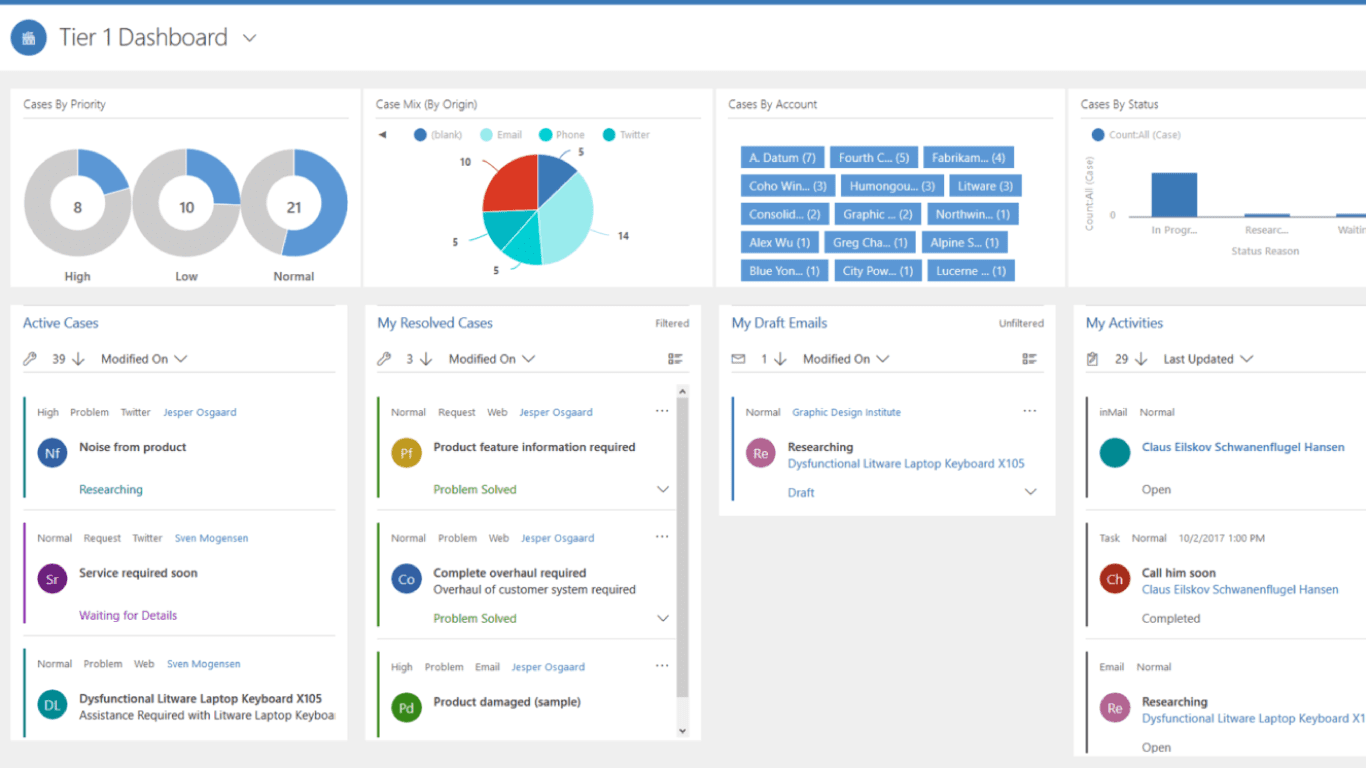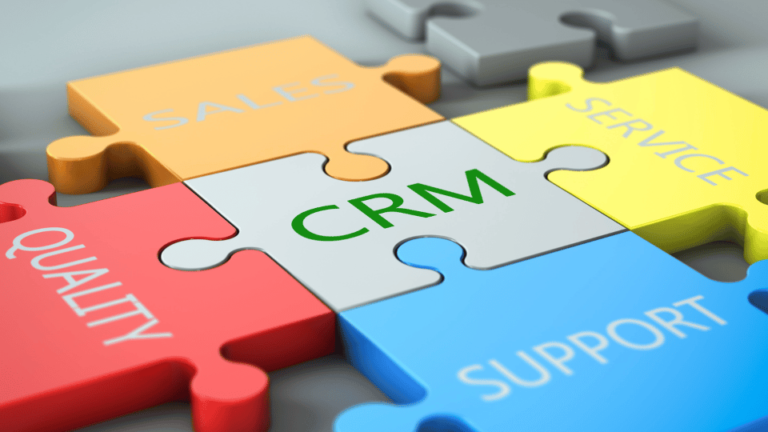
CRM with Ticketing System Integration: Delivering Exceptional Customer Experiences and Streamlining Support
In today’s customer-centric business landscape, providing exceptional customer experiences is paramount. Customers expect seamless interactions, quick resolutions to their issues, and personalized attention. To meet these demands, businesses are increasingly turning to integrated solutions that combine the power of Customer Relationship Management (CRM) with the efficiency of ticketing systems. This integration streamlines support processes, empowers agents, and ultimately, enhances customer satisfaction and loyalty.
Understanding the Core Components: CRM and Ticketing Systems
Before diving into the benefits of integration, let’s define the core components:
-
Customer Relationship Management (CRM): CRM is a technology and strategy that helps businesses manage and analyze customer interactions and data throughout the customer lifecycle. It aims to improve customer relationships, assist in customer retention, and drive sales growth. A CRM system typically stores a wealth of information about customers, including contact details, purchase history, communication logs, preferences, and demographic data. This information is crucial for understanding customer needs and tailoring interactions accordingly. Leading CRM platforms include Salesforce, Microsoft Dynamics 365, Zoho CRM, and HubSpot CRM.
-
Ticketing System: A ticketing system is a software application designed to manage and track customer support requests, often referred to as "tickets." When a customer submits a request (via email, phone, web form, or other channels), the system creates a unique ticket number. The ticket then moves through a workflow, being assigned to agents, prioritized, and tracked until resolution. Ticketing systems provide a centralized platform for managing support inquiries, ensuring that no request falls through the cracks and that agents can efficiently address customer issues. Popular ticketing systems include Zendesk, Freshdesk, Jira Service Management, and Help Scout.
The Power of Integration: Bridging the Gap Between Sales, Marketing, and Support
While both CRM and ticketing systems offer significant value on their own, their integration unlocks a new level of efficiency and customer-centricity. Here’s how the integration works and its benefits:
-
Unified Customer View: The most significant benefit of integration is creating a 360-degree view of the customer within both the CRM and ticketing system. When a customer submits a support request, the agent can immediately access the customer’s CRM profile, providing valuable context such as purchase history, past interactions with the company, and any relevant notes. This eliminates the need for agents to switch between systems or ask the customer for redundant information, leading to faster resolution times and a more personalized experience.
-
Enhanced Agent Productivity: Integration streamlines workflows and reduces manual tasks for support agents. For example, when a new ticket is created, the system can automatically populate the customer’s information from the CRM, eliminating the need for manual data entry. Agents can also easily access CRM data within the ticketing system to understand the customer’s history and tailor their response accordingly. Automated routing and escalation rules can further improve efficiency by ensuring that tickets are assigned to the appropriate agent or team based on predefined criteria.
-
Improved Collaboration: Integrated systems foster better collaboration between different departments. For example, if a support agent identifies a product defect, they can easily escalate the issue to the product development team through the CRM. Similarly, sales and marketing teams can access support data to understand common customer pain points and tailor their messaging accordingly. This cross-functional collaboration leads to more effective problem-solving and a better overall customer experience.
-
Data-Driven Insights: Integrating CRM and ticketing systems provides a wealth of data that can be used to gain valuable insights into customer behavior and support performance. By analyzing ticket data, businesses can identify common issues, track resolution times, and measure customer satisfaction. This information can then be used to improve products, services, and support processes. CRM data can also be used to personalize marketing campaigns and identify opportunities for upselling and cross-selling.
-
Personalized Customer Experiences: With a unified view of the customer, businesses can deliver highly personalized experiences across all touchpoints. Support agents can tailor their responses based on the customer’s past interactions, purchase history, and preferences. Marketing teams can use CRM data to segment customers and deliver targeted messages that resonate with their specific needs. This level of personalization leads to increased customer engagement and loyalty.
-
Proactive Support: By analyzing customer data within the integrated system, businesses can identify potential issues before they escalate. For example, if a customer has recently experienced a series of technical difficulties, the support team can proactively reach out to offer assistance. This proactive approach can prevent customer churn and improve overall satisfaction.
-
Increased Sales Opportunities: Support interactions can often uncover sales opportunities. For example, if a customer is experiencing issues with an older product, the support agent can suggest an upgrade or a newer model. By integrating CRM and ticketing systems, businesses can easily track these opportunities and ensure that they are followed up on by the sales team.
Implementing CRM and Ticketing System Integration: Key Considerations
While the benefits of integration are clear, successful implementation requires careful planning and execution. Here are some key considerations:
-
Choose the Right Integration Approach: There are several ways to integrate CRM and ticketing systems, ranging from native integrations offered by the vendors to custom integrations built using APIs. The best approach will depend on the specific systems being used and the desired level of integration. Native integrations are generally easier to implement but may offer less flexibility. Custom integrations require more technical expertise but can provide a more tailored solution.
-
Define Clear Goals and Objectives: Before embarking on an integration project, it’s important to define clear goals and objectives. What specific business problems are you trying to solve? What metrics will you use to measure the success of the integration? Having a clear understanding of your goals will help you stay focused and ensure that the project delivers the desired results.
-
Data Migration and Cleansing: Migrating data from one system to another can be a complex process. It’s important to carefully plan the data migration process and ensure that the data is clean and accurate. This may involve cleansing existing data, mapping fields between the two systems, and testing the migration process thoroughly.
-
Training and Adoption: The success of the integration depends on user adoption. It’s important to provide adequate training to all users on the new system and processes. This training should cover the key features of the integrated system and how to use it to improve their daily workflows. Ongoing support and communication are also essential to ensure that users are comfortable with the new system and are able to use it effectively.
-
Security and Compliance: Data security and compliance are critical considerations when integrating CRM and ticketing systems. Ensure that the integrated system is compliant with all relevant regulations, such as GDPR and HIPAA. Implement appropriate security measures to protect customer data from unauthorized access.
Conclusion: A Strategic Investment for Customer-Centric Growth
Integrating CRM and ticketing systems is a strategic investment that can deliver significant benefits for businesses of all sizes. By creating a unified customer view, streamlining support processes, and empowering agents, this integration enhances customer satisfaction, drives loyalty, and ultimately, fuels business growth. While implementation requires careful planning and execution, the long-term benefits of a well-integrated CRM and ticketing system far outweigh the initial investment. In today’s competitive market, where customer experience is a key differentiator, businesses that prioritize integration will be well-positioned to thrive. By carefully considering the key factors outlined above, companies can successfully integrate these powerful tools and unlock the full potential of their customer relationships.

